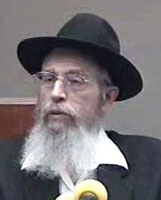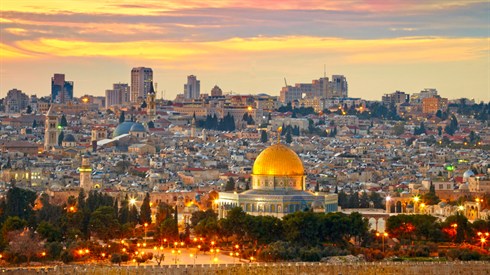Just as mourners may not greet others (sa yd 385), so too, one may not greet others on Tisha Be-Av (sa 554:20). The Hebrew expression that refers to greeting others is "she’eilat shalom," which literally means to "inquire about the peace" of another. Since one who has lost a close relative is not in a state of peace, and no one is in a state of peace on Tisha Be-Av, because we are mourning the destruction of our Holy Temple, one may not greet others in either case.
In particular, Torah students who know this halakha must be careful in this regard. However, when one who is unfamiliar with this halakha extends greetings, the recipient should return the greeting in a soft voice and serious tone, as one who is preoccupied with thoughts of mourning and sorrow, making sure not to insult the person in the slightest. If the person who initiated the greeting is eager to learn Torah and will definitely not be insulted, one should explain to him that we do not greet one another on Tisha Be-Av.
According to most poskim, one may not even say, "Good morning," or "Good evening" (mb 554:41, Kaf Ha-ĥayim 554:90). Some, however, rule that only the greeting "shalom" is prohibited, but one may use phrases like "Good morning" (Leket Yosher). We already learned that in a time of need – in order to avoid insulting others – one may return a greeting; and since some maintain that "Good morning" and "Good evening" are not included in the prohibition, it is preferable to use these phrases rather than saying "shalom."14
If one meets a friend who just got married or had a child, he may wish him "mazal tov," since blessings and congratulations are not prohibited, only greetings (Piskei Teshuvot 554:19). Similarly, handshakes are not included in the prohibition (Har Tzvi, yd 290).
Just as one may not greet others on Tisha Be-Av, one also may not send gifts to others (mb 554:41). Charity, however, is not considered a gift, so one may send food to the needy – it is even a mitzva to do so – so they can have something to eat after the fast (see Kaf Ha-ĥayim 554:91).

"...but he could not become warm."
Rabbi Shimon Klein | 5761
Matza Ashira and Matza Sheruya
Chapter Eight-Part One
Rabbi Eliezer Melamed | 5775

The Bracha on Blossoming Trees
Rabbi Yirmiyohu Kaganoff | Adar II 27 5782







